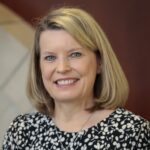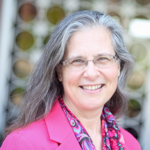It started by answering a question.
In 1994, Purdue alumna Lorene Burkhart and a group of advocates worked to bring about change at Purdue – a multidisciplinary approach to identify and promote family strengths to address challenges families face. They created the Center to reach across the University and beyond, to build a community who share a common purpose and focus on families.
Their actions ensured the Center’s longevity for future generations. We are able to move quickly to support projects and initiatives that may not be possible otherwise.
Today, the Center continues to work to improve the quality of life for families in all their diverse forms. We seek opportunities. We foster collaboration. We recognize high-quality family research to inform and empower decision makers.


